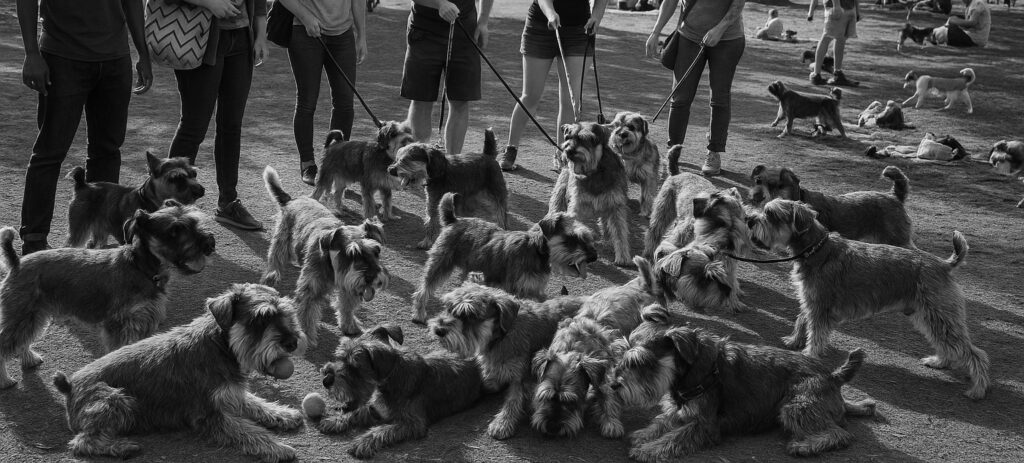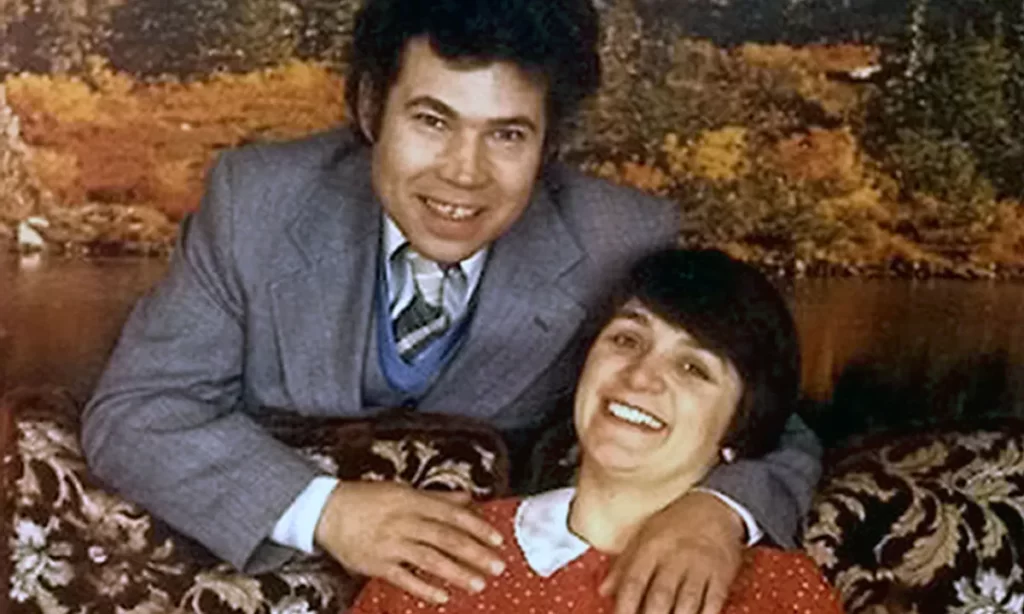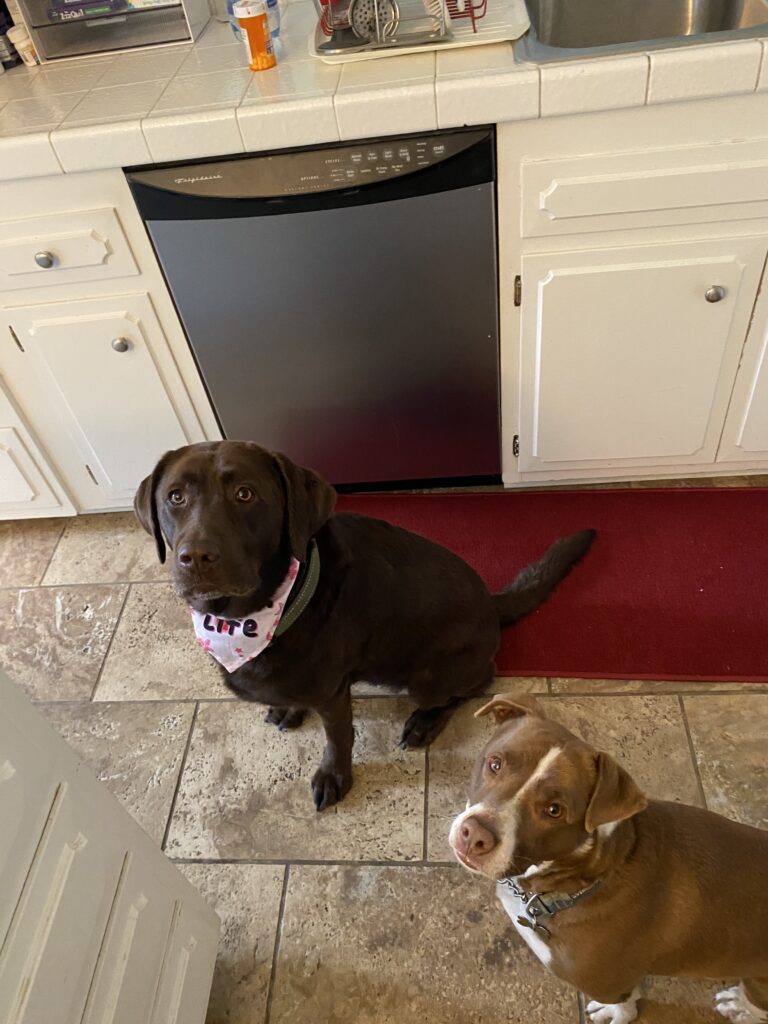My dark and milk chocolates,
Today was Schnauzer Meetup Day, and I failed you.
The park was overrun—hundreds of identical, yippy dogs and their camera-laden humans forming what can only be described as a mild suburban coup.
No notice. No warning. Just schnauzers, everywhere, like someone cracked open a piñata full of fiddle outfits, bandanas, and clickbait.
We stayed, of course. We always do. You two held your ground like pros.
Jadie, you photobombed every schnauzer picture within a twenty-yard radius. Somewhere out there, a dozen Instagram accounts have you grinning in the background like a furry anti-influencer, a one-dog counterprotest to the schnauzerfication of public space.
And better yet, you worked the crowd. You’d sidle into a treat-stuffed tableau, tilt your head just so, and get paid in liver bits and duck nuggets. You were mugging-as-a-service.
Charlie, you stuck close. No costumes, no crowd work, just quiet loyalty and a running commentary of side-eye.
I saw your look when they brought out the group shot—the disdain for breed purity and its country-club exclusivity. You’ve got no time for velvet ropes at the water bowl.
I looked it up: “Schnauzer” means “mustached one” in German. That tracks. The whole event felt like a grooming cult. A field of mustaches on legs.
Every dog looked like it was waiting to be knighted for its service to barkdom. If the American Kennel Club handed out monocles, this would’ve been their gala.
And the sounds. Schnauzers don’t bark. They self-identify via squawk, like broken typewriters protesting their workload. A group of them shrieked at a butterfly and then turned on each other. It was performance anxiety in a minor key.
But here’s what gets me: the sameness. The croutoning of the dog world. Who wakes up thinking, “I wish I could spend the afternoon with 150 versions of my own dog”?
Difference is the oxygen of good days. Jadie’s bear-growl muttering. Charlie’s sideeye stares. The unexpected grammar of dogs being themselves.
So no, we didn’t flee. We endured. Because joy doesn’t evacuate. Joy stands its dusty ground.
Next week, the park will clear. The monocled masses will recede into their schnauzer lairs.
But today, you both made a statement. A photobomb and a quiet hangdog—protests in their own dialects.



